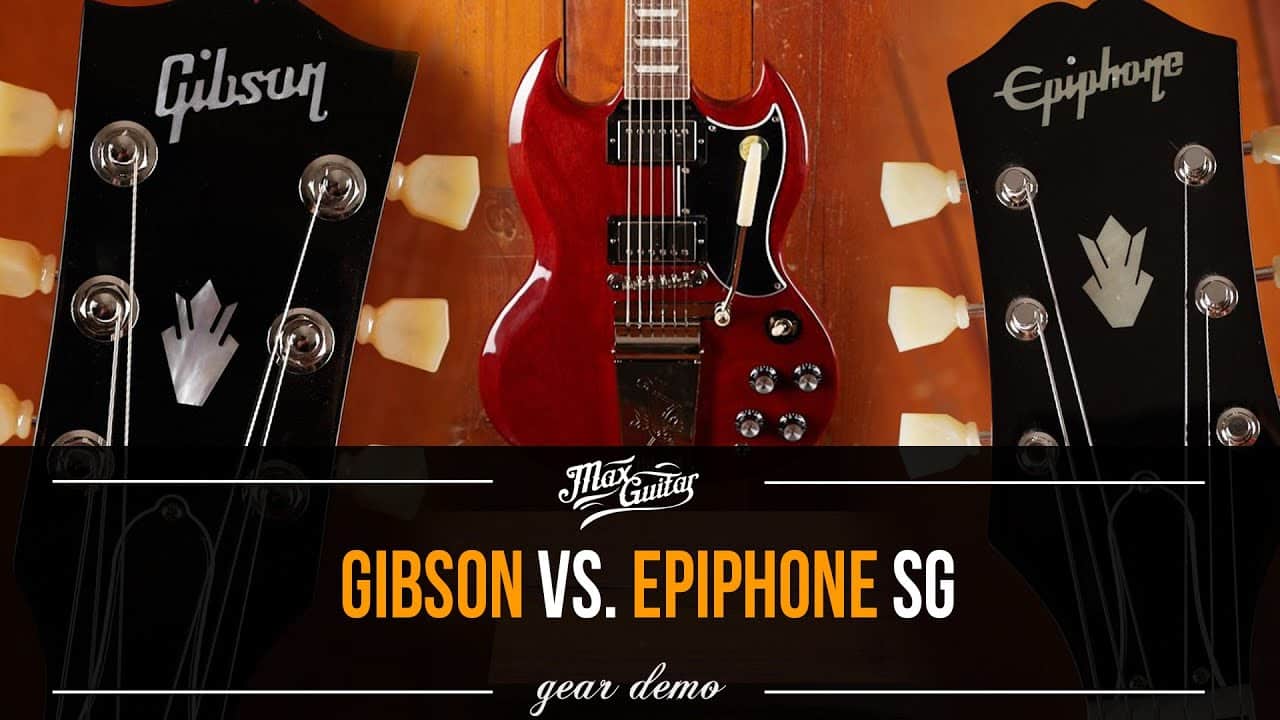Contents
Have you played an SG electric guitar? If so, is it from Epiphone or Gibson? To give you a more detailed and in-depth comparison of Epiphone SG vs Gibson SG, here’s an article that’s focused on discussing these two guitars. Do you think you’ll love to continue playing an Epiphone SG or switch to Gibson SG, and vice versa? Read on to learn more!
What is an SG Guitar?
If you are holding a hard-to-resist ax with a curved double-cut Mahogany body, Cherry Red finish, and a black pickguard, you have an SG. The name stands for ‘solid guitar,’ which refers to the body type of the guitar, like the iconic Les Paul.
It was and is a great guitar, not only because it’s a Gibson, but because it’s cheaper, lighter, and more versatile. On top of these advantages, the SGs share the same warmth and sound quality as the Les Paul. The SG is more welcomed by rock artists because of its more articulate “snap” and the irresistible ringing sound at the top end.
More versatile to play since the neck meets the body at the 19th fret instead of the former 16th-fret neck joint. This means it’s very easy to play, which makes it great for solos and upper-register fretwork. It features a thinner flattop body, which is lighter and more shoulder-friendly, especially for lengthy concerts and recordings. The lighter weight and thinner structure make the guitar more responsive and very resonant.
Gibson SG & Epiphone SG – The History
In the 1960s, when the Gibson Les Paul sales were sloping down, they needed to do something about it. Some players had the perception that the LP was old-fashioned, and it came with a hefty price tag. Thus, the Gibson SG was born.
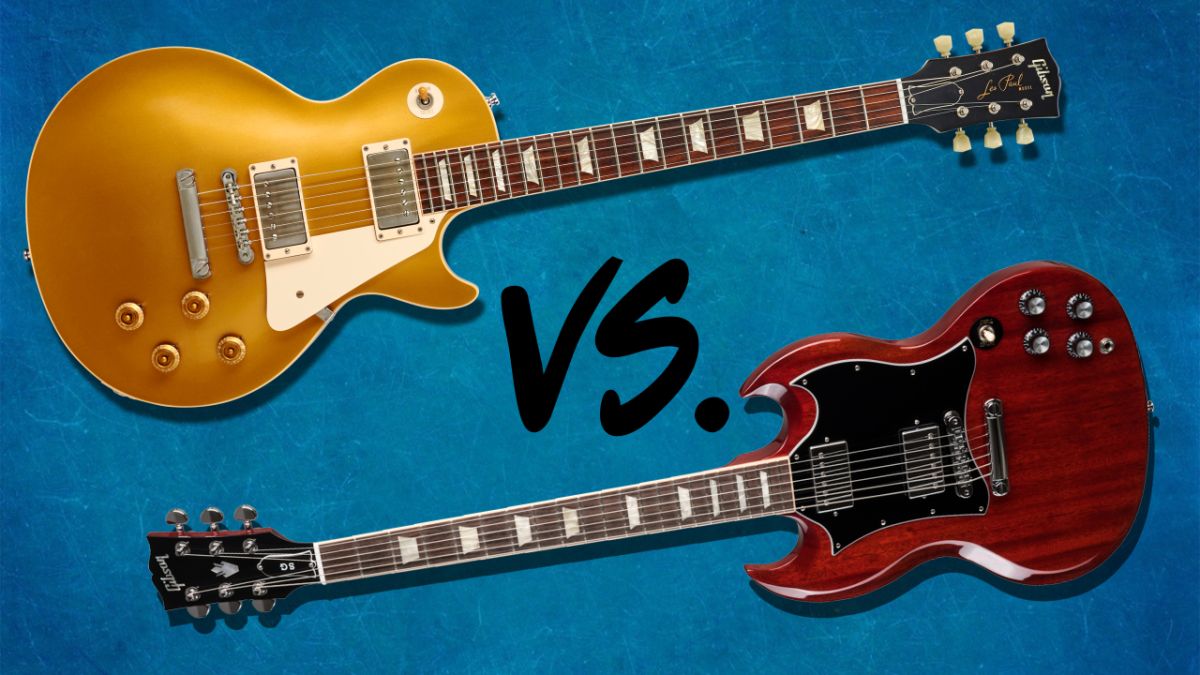
Actually, going back a few years before the SG was named as such, it was a new variant of the Gibson Les Paul. It’s characterized by a thinner, flat-topped solid mahogany body instead of a carved maple archtop. A double-cutaway with the neck joint much closer to the body, as mentioned above. The neck was slender with a more comfortable profile, and it featured dual-humbuckers for tonal versatility.
Unfortunately, Les Paul doesn’t like the new and improved LP and wanted his name to be dissociated from the now, Gibson SG. There were some deliberations, and it was only in 1963 that the name Les Paul was completely removed from the nameplate and the truss rod. Since then, Gibson has released several guitars under SG including the SG Standard, SG Custom, ’61 Reissue, and SG Junior.
Epiphone, a brand under Gibson, released the more affordable range of these guitars – the Epiphone SG. Both Gibson and Epiphone continue to produce different SG guitars varying only in the number of pickups and electronics, hardware options, finishes, and different bridge and tailpiece choices.
In-Depth Comparison Between Different SGs
This article won’t suffice if each SG guitar from Epiphone and Gibson will be compared and contrasted one by one. So, let’s check into the difference between Epiphone SG vs Gibson SG in the three collections -Standard, ’61 Reissue, and Custom. As an opener, check this YouTube video.
SG Standard
This SG guitar has helped shape the original hard rock genre. Guitars under the SG Standard have good looks, offer great performance, and are more versatile, whether it’s an Epiphone or Gibson SG.
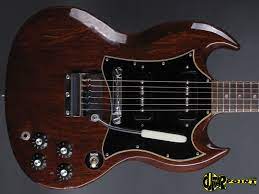
Similarities
SG Standards for Gibson and Epiphone have the same beautiful mahogany body. Both have stunning double-cutaway body. The fretboard of these guitars is bound with 22 medium jumbo frets. The Graphtech nut which can be found on both guitars helps achieve tuning stability, tone, and string longevity.
Differences
One of the stellar features that separate Gibson from the Epiphone version is the humbuckers. The Epiphone SG has ‘60s SlimTaper neck shape, while on Gibson is the round neck profile. The former has plush rosewood fretboard with acrylic trapezoid inlays, while the latter has Indian Laurel fretboard with Pearloid trapezoid inlays.
SG Standard ’61 Reissue
As the name suggests, this SG guitar range is the ‘reissue’ of the very first Gibson SG. It was first introduced way back in 1961 and became an instant icon.
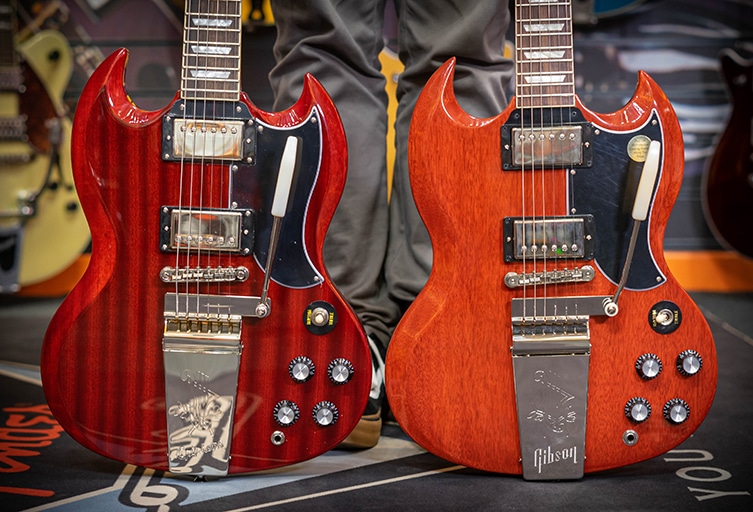
Similarities
Just like the SG Standard, both Epiphone SG and Gibson SG guitars feature a mahogany body that’s responsible for giving these guitars that warm and resonant tones. In the neck department, both feature mahogany necks with SlimTaper profile like the original 1961 classic. Both are equipped with nickel-plated Tune-O-Matic bridges and pickguards.
Differences
Gibson SG Standard ’61 Reissue comes with nitrocellulose lacquer which still allows the wood to breathe – improves resonance and tone of this version. Epiphone, on the other hand, has a polyurethane finish. In the Gibson SG, you can find rosewood, while the Epiphone has Indian Laurel.
In terms of the electronics, Gibson SG has Burstbuckers, while the Epiphone has Probuckers. The former is much hotter, especially in hard rock music. If you are looking for the SG Reissue that can give you the famous SG snarl, the Gibson SG is the best choice.
SG Custom
When you are after the design and all the wonderful stuff of an SG, you should get the SG Custom guitars. Loaded with all the good things you are hoping for in a guitar, between the Epiphone SG vs Gibson SG, it’s hard to pick one.
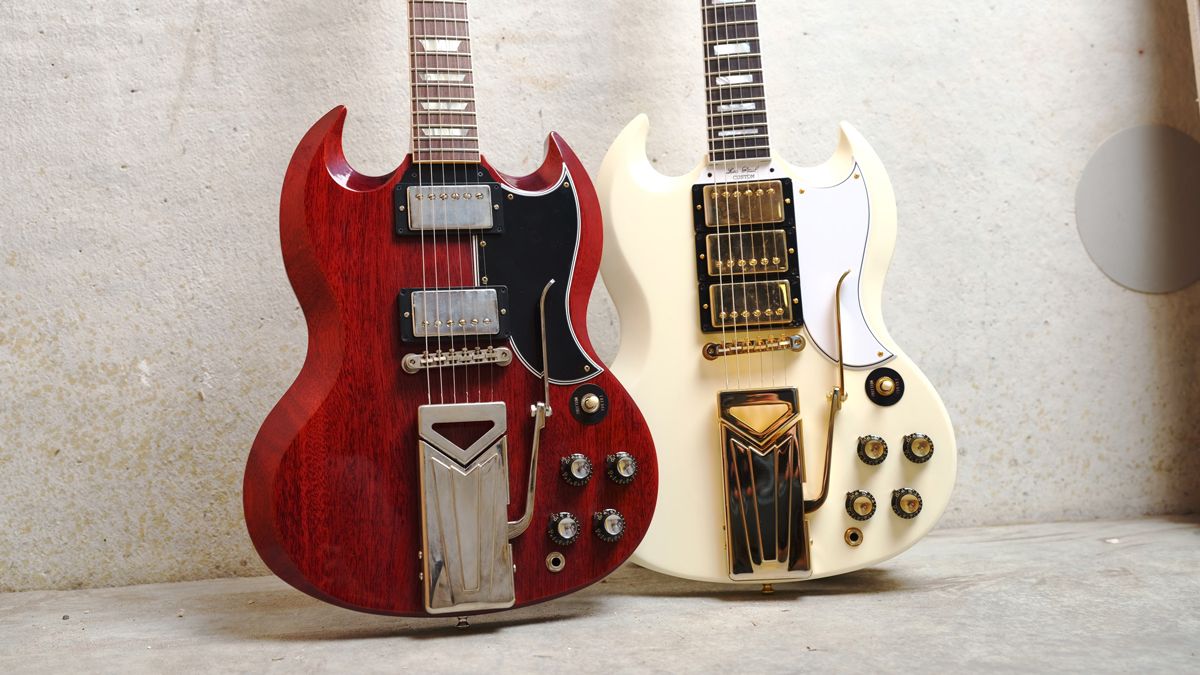
Similarities
Still made of the mahogany body, but the SG Custom really requires a professional luthier to put everything into a great guitar. They both have ebony fretboards divided into 22 medium jumbo frets. Featuring SlimTaper necks, fully bound neck and so much more.
Differences
Gibson SG Custom is PLEK’d, which means, it has an almost perfect action. You can play as much as you want – your style, without choke-ups, and just great overall tone. The humbuckers in the Gibson offer crunchy highs and clear cleans. The Alnico Custom Pro humbuckers of the Epiphone can also handle varied tones – from cleans to distortions.
Conclusion
There should be no more confusion whether to choose an Epiphone SG or a Gibson SG. This article had touched on the differences and similarities of Epiphone SG vs Gibson SG in three different SG variations.
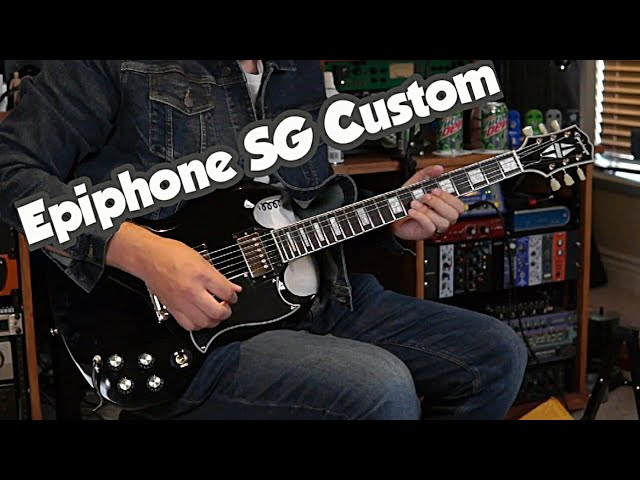
You know that whether you’ll get the premium Gibson or the more affordable Epiphone, you’ll achieve the classic SG tone from either guitar. Unless you have all the money you need for a Gibson, get a Gibson – the build, design, electronics, and hardware are top-of-the-line. Yet, if you only spare a few dollars of your hard-earned money to get an SG, settle for Epiphone. Not only that you’ll get a cheaper guitar, you can still get the SG tone you are crazy about.

Hi music fan! I am Jeff. Hope that you enjoy some stuff I shared here in my personal blog.
About myself, Currently I am in charging as Artist Manager/Music Supervisor at 72 Music Management. I did managed album to Grammy Award in 2017 with 7 Nominations from 2014-2020 and had the opportunities to work with : A.J. Croce, Blind Boys of Alabama, Bobby Rush, Dom Flemons, Dustbowl Revival, Sarah Grace
Governor of the Memphis Chapter of The Recording Academy is one of a award that I am lucky to achieved.
